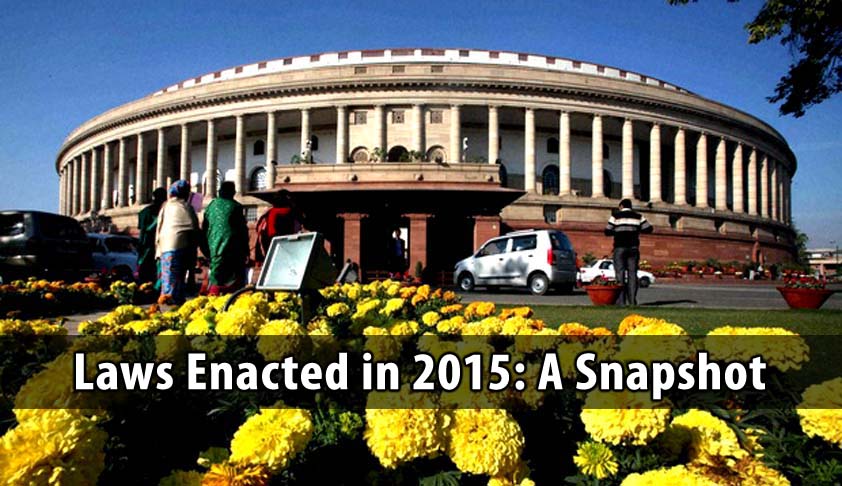- Home
- /
- Cover Story
- /
- Laws Enacted in 2015: A Snapshot
Laws Enacted in 2015: A Snapshot
Apoorva Mandhani
3 Jan 2016 1:09 PM IST
1. The Negotiable Instruments (Amendment) Act, 2015The Act amends the Negotiable Instruments Act, 1881 and replaces the Negotiable Instruments (Amendment) Ordinance, 2015 which was promulgated on June 15, 2015. It stipulates that in case of a cheque being dishonored:If the cheque is delivered for collection to the account of the payee (person who receives the cheque), the jurisdiction lies...
Next Story



